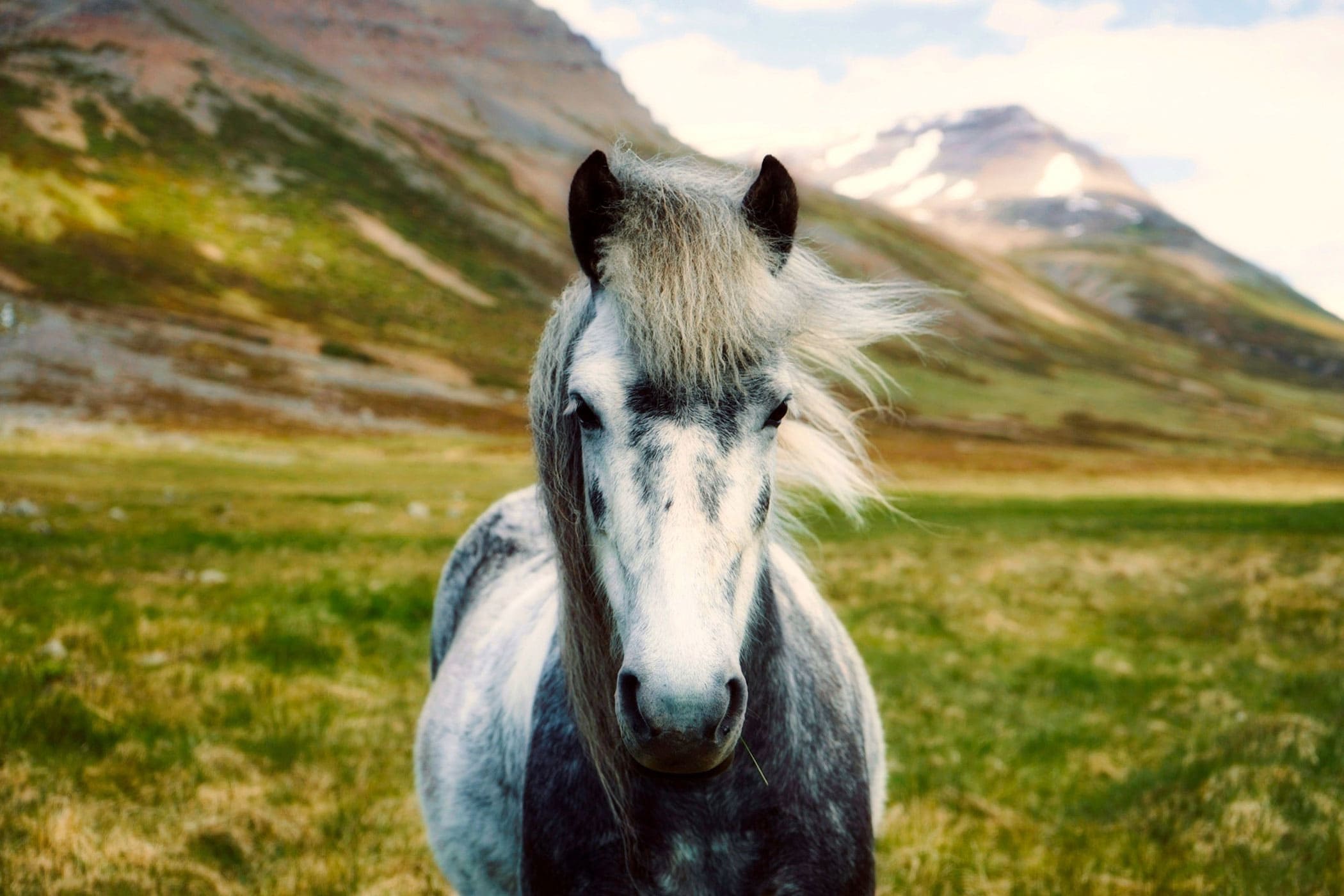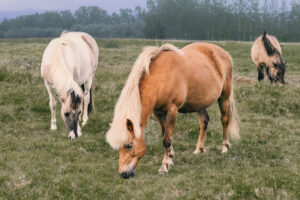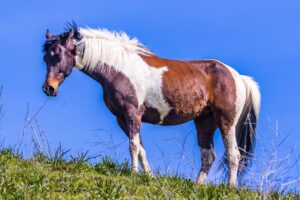
When it comes to diminutive equines, the terms mini horse and pony are often used interchangeably, leading to confusion among horse enthusiasts and casual observers alike. However, contrary to popular belief, mini horses and ponies are not one and the same. They possess distinctive characteristics, origins, and purposes that set them apart from each other. In this article, we delve into the world of these enchanting small equines, uncovering the differences that make them unique.
Origins and Breeding:
To understand the dissimilarities between mini horses and ponies, it is crucial to examine their origins and breeding histories. Miniature horses, as the name suggests, are specifically bred for their diminutive stature. They are the product of selective breeding programs that aim to reduce the size of standard horse breeds while retaining their desirable characteristics. Through meticulous breeding practices over generations, breeders have succeeded in creating these scaled-down versions of their larger counterparts.
Ponies, on the other hand, are distinct equine breeds in their own right. They have evolved over centuries in various parts of the world, adapting to specific environments and fulfilling diverse roles. Unlike miniature horses, ponies were not selectively bred to reduce their size. Instead, they have naturally small physiques, often displaying sturdiness and hardiness suitable for their native habitats.
Physical Attributes:
Size is undoubtedly the most apparent difference between mini horses and ponies. Mini horses are generally no taller than 38 inches at the shoulder, with an average height ranging from 28 to 34 inches. Their proportions closely resemble those of their larger horse relatives, exhibiting graceful body structures, refined features, and an overall elegant appearance. In contrast, ponies typically measure between 11 and 14.2 hands (44 to 58 inches) at the shoulder. Their compact bodies often exhibit stocky builds, with sturdy legs, thick manes, and tails.
Temperament and Personality:
While both mini horses and ponies share many desirable qualities such as intelligence, docility, and affection towards humans, their temperaments may differ subtly. Mini horses, bred to exhibit characteristics similar to their larger counterparts, often possess an inherent sense of curiosity, gentleness, and a desire to please. They are known for their trainability, making them popular choices for therapeutic programs and as companions for both children and adults.

Ponies, with their centuries-old history of independent existence, tend to showcase more diverse temperaments. Some ponies display an independent streak, coupled with a strong will and a hint of mischievousness. However, this can vary greatly depending on the breed and individual pony. Many ponies are well-suited for children and beginners due to their calm and patient nature, making them ideal for riding lessons and equestrian activities.
Uses and Activities:
The purposes for which mini horses and ponies are employed further highlight their differences. Mini horses are primarily kept as companion animals and are often utilized in therapeutic settings. Their small size makes them accessible to individuals with limited mobility or those seeking emotional support. Mini horses can be trained to perform tasks similar to larger service animals, bringing joy and comfort to people in need.
Ponies, on the other hand, have a broader range of uses and activities. They are frequently employed for recreational riding, especially by children and small adults. Due to their hardiness and resilience, ponies excel in various equestrian disciplines such as show jumping, dressage, driving, and eventing. Some pony breeds, such as the Shetland pony, are even used for pulling carts and participating in traditional harness racing events.
Conclusion:
In conclusion, while mini horses and ponies may share some similarities, they are distinct equine categories with their own origins, physical attributes, temperaments, and purposes. Mini horses are selectively bred to achieve small sizes while retaining the qualities of larger horse breeds. Ponies, on the other hand, have naturally evolved into small equines over time, adapting to different environments and fulfilling various roles. Understanding the disparities between mini horses and ponies not only enhances our appreciation for these fascinating creatures but also aids in choosing the most suitable companion or equine partner based on individual needs and preferences.






